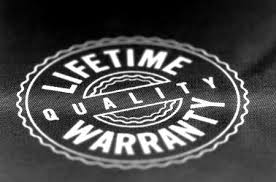
People often enter recovery when they “wake up” to the pain of addiction. They see that addiction has not brought them happiness and fulfillment, but tenfold pain. In the midst of this pain, people surrender to their need for recovery.
Stopping addictive behaviors and becoming sober is just the beginning. You work your recovery not just to get sober, but to be happy. Like life itself, recovery is a process, not an event. Recovery does not get a day off. If you are not moving away from addiction, you are moving closer to it. Once you stop turning the handle on the generator that lights your recovery, the light goes out. Recovery is the journey, not the destination. It ends only with life’s end. Recovery isn’t something you do until you are “better.” It is a way of being, seeing, and doing. It is the bread of daily life, not just cake for special occasions.
It’s said “the biggest room is the room for improvement.” Though perfection is unreachable, working a recovery program protects you from relapse and enhances the richness of your life. If you feed your addiction, it will progress. The same is true for your recovery.
With a commitment to total recovery, the help of others, and grace, you begin the slow process of healing, reclaiming, and rebuilding your life. You repair, as much as possible, the damage you have caused. This process can seem hopeless when you first awaken to the devastation of your life. Becoming abstinent may seem easy compared to the work of recovery. It can take time, often several years, to achieve a stable foundation of recovery in which you feel a sense of wholeness, integrity, meaning, fulfillment, and serenity. There is a saying that “when you walk ten miles into the woods, you have to walk ten miles out.” And walk you must, for if you do not address the causes of your addiction, your past will become your future.
Work on your recovery patiently, persistently, one day at a time. Recovery cannot be forced. It comes to your as a karmic consequence of your right actions. Knowing the answers is not enough; you must do the work.
A cup of prevention is worth a gallon of relapse. When you don’t want to do the work, you need recovery the most. You must “show up to grow up.” You progress in your recovery each day you do not addict and devote yourself to living in harmony with the Whole of which you are a part.
This achievement comes to people by grace, a gift invited by your efforts to do the next best thing. The experience of recovery can seduce you into the illusion you are cured of addiction. Recovery, your psychospiritual fitness, is like physical fitness; once achieved, it requires regular work to maintain. Your ego continues to grasp compulsively for pleasure and push away pain. Recovery entails lifelong mindful management of the ego.
You may stop addicting, but the fundamental dynamic of compulsively grasping for pleasure and pushing away pain at all costs remains. It cannot be eliminated, but only managed. The best you can hope for is a lifelong practice of seeing the workings of your mind, letting go of addictive compulsions, and surrendering to what is best for everyone. As soon as you cease your recovery practices, the addiction resurfaces, seeping back into the fabric of your life.
When you succumb to the illusion that that your addiction if cured, you fall prey to your addictive mind. Your recovery work keeps the memory fresh that addiction is not the answer to life’s difficulties. Otherwise, compulsive pleasure-seeking or pain-numbing behaviors return, taking over once again and wreaking havoc in your life. It may take a day, a month, a year, or several years, but it will happen. This is why recovery is for life.
Next week I will follow up with a discussion of recovery rituals and practices. Stay tuned!
